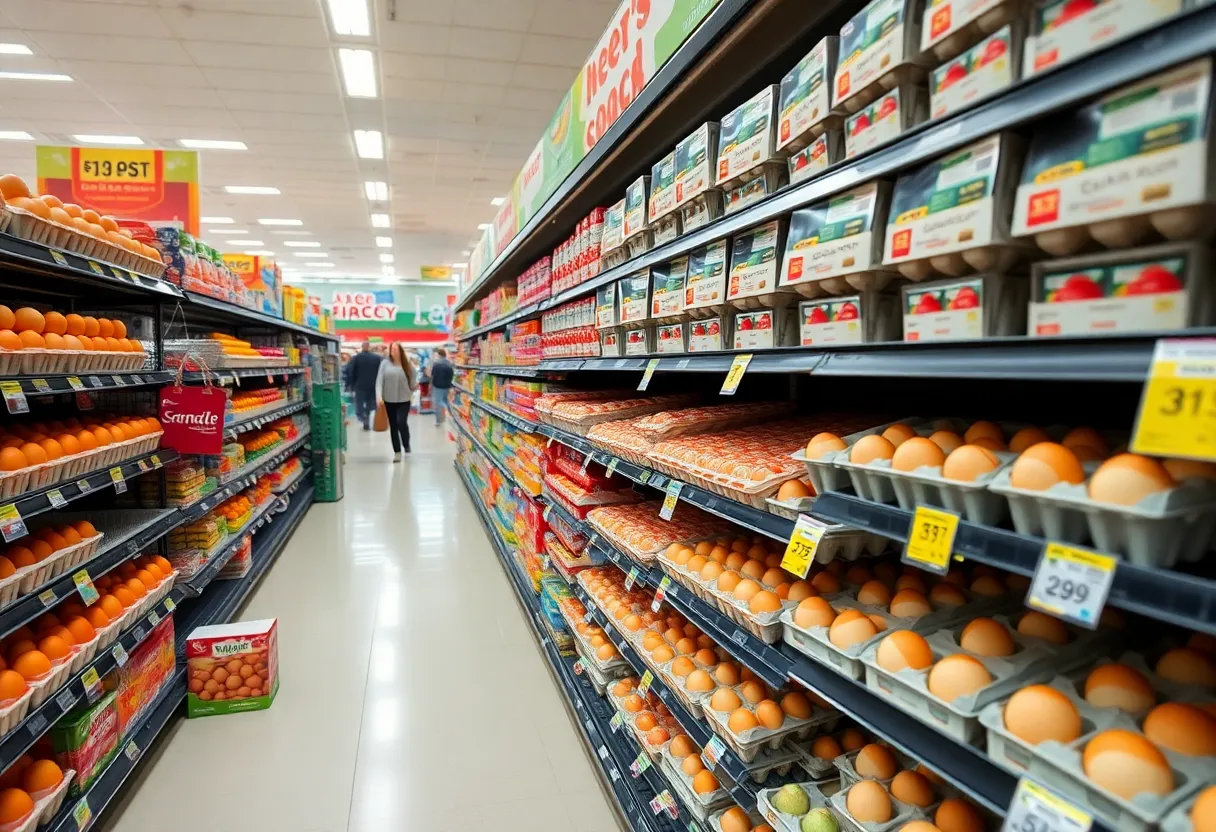News Summary
Recent insights into the grocery industry reveal essential strategies for attracting Gen Z consumers. While this demographic craves fresh foods, current spending doesn’t match their preferences. Innovative approaches, including unique product offerings and enhanced digital marketing, are crucial for grocers to engage this tech-savvy generation effectively.
New Research Sheds Light on Grocery Strategies to Attract Gen Z
Hey there, food lovers! A recent dive into the grocery industry has uncovered some insightful strategies that could really help retailers win over Gen Z consumers. If you’re wondering how grocery stores can better cater to this vibrant and savvy demographic, then you’re in for a treat!
The Importance of Gen Z for Grocers
First off, did you know that a whopping 80% of grocery executives believe that focusing on younger consumers is crucial for their business? This is a significant realization, especially considering how unique and dynamic Gen Z is as consumers. However, only 20% of these execs think that their private brands are actually hitting the mark with younger shoppers. This discrepancy points to a need for change!
The Craving for Fresh Foods
Gen Z has a serious appetite for fresh foods. Yet, here’s the twist: their spending doesn’t quite match that craving. In fact, only 27% of their grocery budget goes toward fresh foods. It’s curious, right? But it seems like there’s a desire among these consumers to make lifestyle changes, with 64% wanting to add more healthy foods to their diets and 50% hoping to include more fresh foods in their meals.
Innovate to Captivate
So how can grocery stores tap into this desire? They need to get creative with their fresh food assortments. It’s all about focusing on convenience, unique flavors, and keeping prices accessible. Gen Z loves discovering new products, so offering exciting options like diverse fresh salsa varieties, pre-chopped vegetables, and trendy produce such as donut peaches could make all the difference!
Moreover, when it comes to flavor profiles, Gen Z seems to have a keen interest in “swicy” flavors that are both sweet and spicy. Imagine indulging in a refreshing spicy guava lemonade or treating yourself to hot honey rotisserie chicken! Grocers should definitely be moving in that direction.
Breaking Old Shopping Habits
Another noteworthy point is that Gen Z consumers are less tied to long-standing shopping habits. Many are open to exploring new and unique grocery brands. In fact, 91% of respondents aged 18 to 34 shared that the availability of unique private label products can influence their choice of where to shop. So, if a grocery store can offer something distinctive, they’ve got a better chance of attracting younger shoppers.
The Budget-Friendly Appeal of Private Brands
Since Gen Z often has tighter budgets, private brands can be an appealing entry point. These shoppers, who may not have as much cooking experience, are drawn to ready-to-cook items and meal inspiration from grocers. In-store tools like QR codes for cooking tutorials and personalized recommendations through apps could also enhance their shopping experience, making it fun and engaging.
The Power of Digital Marketing
When it comes to reaching these younger consumers, an omnichannel approach is essential. Digital marketing plays a key role, particularly on platforms like TikTok, Instagram, and YouTube. These platforms are not just for fun; they can actively drive traffic to physical stores by promoting private brand offerings in engaging ways.
Riding the Wave of Online Shopping
However, engaging Gen Z shoppers isn’t just about enticing them in-store. Improved e-commerce features like robust search functionalities and captivating product images can significantly enhance their online shopping experiences. Private label sales have already reached new heights, hitting $121 billion and accounting for 22.9% of the market share. This suggests that there’s real potential if grocery retailers focus on the right strategies.
Challenges Ahead
While Gen Z is indeed a promising demographic for private brand growth, challenges still remain due to budget constraints and varying cooking experiences. It’s clear that grocery brands must innovate their marketing strategies, differentiate products, and incorporate sustainability initiatives to truly resonate with these young consumers.
In summary, as grocery stores adapt to the preferences and habits of Gen Z, we hope to see an even wider selection of fresh and inspiring foods that cater to their tastes and lifestyles. The future is bright, and it seems that the grocery industry has a lot of work to do—exciting work, at that!
Deeper Dive: News & Info About This Topic
HERE Resources
Community Initiative in Novi, Michigan, Tackles Food Insecurity
Increased Demand at Local Senior Center
Revamping Jackson’s Low-Income Housing Units for the First Time in 55 Years
Ontario Imposes 25% Electricity Export Surcharge
Senator Slotkin Addresses Trump’s Economic Policies
Kroger CEO Resigns Amid Ethics Investigation
HR Acuity Partners with Labor Relations Institute to Enhance Workplace Relations
Farmers in Illinois Face Uncertainty Amid Farm Bill Delay
Aldi Expands with New Locations in Michigan
Retailers Embrace Omnichannel Strategies to Meet Evolving Consumer Expectations in 2024
Additional Resources
- Grocery Dive: Grocers Targeting Private Brands for Gen Z
- Wikipedia: Private Label
- NielsenIQ: Private Label Innovations
- Google Search: Private Label Innovations
- Business Wire: Arketi Group Secures Private Equity Investment
- Google Scholar: Private Label Marketing
- Meat & Poultry: Private Label Market Share
- Encyclopedia Britannica: Private Label Brands
- GlobeNewswire: Private Label Food and Beverages Market Report 2024
- Google News: Private Label Market Trends








